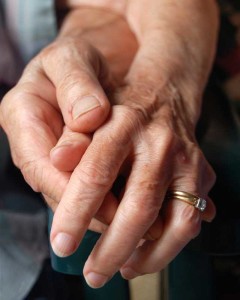
LONDON — A judge in the UK has granted a request to pull the clinically assisted nutrition and hydration (CANH) of a woman who is stated to be “minimally conscious” as her daughter believes that keeping her alive in her current condition brings her “indignity.”
The 68-year-old woman, only identified as Mrs. N, suffers from multiple sclerosis, and experts testified at the trial that while she was considered “minimally conscious,” she could still “fix her vision” and “follow a moving object.”
The woman’s daughter had brought the matter to London’s Court of Protection, stating that it would be against her mother’s wishes to keep her alive under the circumstances.
“My mum’s immaculate appearance, the importance she placed on maintaining her dignity and how she lived her life to its fullest is what formed her belief system; it’s what she lived for,” she stated. “All of that is gone now and very sadly my mum has suffered profound humiliation and indignity for so many years.”
“I cannot emphasize enough how much the indignity of her current existence is the greatest contradiction to how she thrived on life and, had she been able to express this, then without a doubt she would,” the daughter said.
At first, the Office of the Official Solicitor argued in favor of continuing to provide treatment for the woman, stating that there was a “strong presumption in favor of the benefits of continuing life,” but changed their stance after hearing other arguments and supported the daughter’s request.
Justice Anthony Hayden heard the case, commenting that he could not “contemplate a more difficult decision.” He characterized his ruling as an “evolution in case law.”
“There will undoubtedly be people who for religious or cultural reasons or merely because it accords with the behavioral code by which they have lived their life prefer to, or think it morally right to, hold fast to life no matter how poor its quality or vestigial its nature. Their choice must be respected,” he wrote in his decision, but added that “those who would not wish to live in this way must have their views respected too.”
“I am entirely satisfied that there is no prospect of [Mrs. N] achieving a life that she would consider to be meaningful, worthwhile or dignified,” Hayden stated in granting the daughter’s petition to pull the provision of water and nourishment through a stomach tube.
“Ultimately, I have concluded that her wishes, … rebut any presumption of continuing to promote life,” he said. “Quite simply, I have come to the conclusion that it would be disrespectful to Mrs. N to preserve her further in a manner I think she would regard as grotesque.”
Mathieu Culverhouse, who represented the woman’s daughter, noted that the decision was the first of its kind in the country, especially for a patient who has consciousness and is not considered as being in a vegetative state.
“[T]he judge has decided that withdrawing the life sustaining treatment is in the woman’s best interests given her current quality of life,” he said. “There are no winners or losers in sensitive and emotional cases like this.”
A similar battle played out in the United States from 1990 to 2005 when Michael Schiavo, the husband of Terri Schiavo, sought the removal of his wife’s feeding tube, arguing that she would not wish to have her life prolonged. Her parents and siblings fought for care to be continued, as did others who advocated for the right to life.
“People have the impression that Terri was on machines. They think she was dying, [but she wasn’t],” Schiavo’s brother, Bobby Schindler, told the Daily News earlier this year in reflecting on her death. “I don’t think that Terri would ever, ever request that she be starved or dehydrated to death.”
“We wanted to take care of her,” he said. “She was a living human being.”
The Schindlers now run the Terri Schiavo Life & Hope Network in Pennsylvania.
Become a Christian News Network Supporter...


